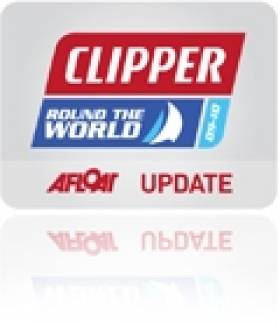Displaying items by tag: Clipper 1112 Round the World Yacht Race
Madeira Becomes Clipper Stop-Over
Madeira has secured a visit by the ten-strong fleet competing in the Clipper 11-12 Round the World Yacht Race which, at 40,000 miles, is the world's longest race.
Ireland is entered in the race courtesy of an entry from the City of Derry. 'Derry-Londonderry' as the entry is called and her skipper and crew will be visiting the city as part of the Foyle Days festival this month from 20-22 May 2011.
Quinta do Lorde Marina on the Portuguese archipelago will be the first port of call after the stripped out, ocean racing yachts depart the south coast of England on 31 July. The fleet is expected to arrive in Madeira between 8 and 10 August this year.
Mr Ricardo Sousa, CEO of Quinta do Lorde Marina, says, "The choice of Quinta do Lorde Marina for this stopover is the recognition of our capacity to host great racing events and the quality support service we provide to them. We look forward to receiving the Clipper fleet and crew and will ensure their visit to Madeira Island is memorable."
Madeira's Tourism Secretary, Mrs Conceição Estudante, says, "It is with great honour and pleasure that Madeira was chosen to be the first stopover of the international Clipper 11-12 Round the World Yacht Race.
"The International projection obtained trough this event is essential to promote our credentials to the yachting world. In fact, the visit of this great event is an opportunity to promote and to push nautical tourism and its potential on the island.
"At the moment Madeira offers excellent conditions to such great events like the Clipper Race, with three modern marinas on Madeira's south coast, professional support services and the beautiful Island of Porto Santo, whose quality has been recognized internationally."
The 68-foot Clipper yachts, each of which is sponsored by a city, region, country or company around the world, will be berthed at Quinta do Lorde Marina, located on the southeast point of Madeira Island. Quinta do Lorde Marina is located in Ponta de São Lourenço, a mesmerising peninsula known for its stunning sea views and natural beauty. Inspired by the island's traditional architecture, the unique resort, which is scheduled to be completed in spring 2012, will resemble a picturesque coastal village and includes a wide range of modern facilities to ensure utmost comfort and relaxation for visitors to the stopover.
As the only event of its kind that is crewed by people from all walks of life – more than 500 crew will be taking part in Clipper 11-12 of whom nearly 40 percent have never sailed before signing up. A 32-day comprehensive training programme ensures they are equipped with all the skills required to compete in this challenging event but their first week, putting them into practice for real, will test them to the full. The beautiful islands of Madeira which are renowned for their stunning scenery as well as providing a warm welcome and a peaceful setting will therefore be a welcome sight to the tired crews in which they can recoup before their first ocean crossing of the race.
The international fleet will visit 14 ports on six continents during the 12-month race including Rio de Janeiro, Cape Town, west and east coast of Australia, New Zealand, Singapore, Qingdao, California, New York, Nova Scotia, Derry-Londonderry and the Netherlands before returning to the UK.
The race was established 15 years ago by Sir Robin Knox-Johnston, the first man to sail solo and non-stop around the world, in order to give ordinary people the chance to do something truly extraordinary. More people have climbed Everest than have raced around the world under sail.
Sir Robin says, "The Clipper fleet first visited Madeira during the inaugural Clipper Round the World Yacht Race back in 1996. At that time they offered the crews a stopover to remember and I'm sure this time round it will be no exception. Our event offers host ports the chance to showcase their facilities to an international audience of more than half a billion people. In addition to this, the spend generated by the crews and their visiting friends and families delivers a significant economic impact for the region."
























































